| Jennifer S. Dail is a professor of English education in the Department of English at Kennesaw State University in Kennesaw, Georgia. She also directs the Kennesaw Mountain Writing Project (KMWP), a National Writing Project site serving teachers Pre-K through college in all content areas. She has received multiple grant awards supporting the work of KMWP, including an Improving Teacher Quality grant. Prior to joining the faculty at Kennesaw State University in 2006, she taught English education courses at the University of Alabama and taught middle and high school English. Dail has served as coeditor of SIGNAL Journal. She is also an active member of National Council of Teachers of English (NCTE) and the National Writing Project (NWP). | Shelbie Witte is the Kim and Chuck Watson Endowed Chair in Education and associate professor of adolescent literacy and English education at Oklahoma State University, where she directs the Oklahoma State University Writing Project and leads the Initiative for 21st Century Literacies Research. Her research focuses on the intersection of twenty-first-century literacies and pedagogy, particularly at the middle level. She is coeditor, along with Sara Kajder, of NCTE’s Voices from the Middle. | Steven T. Bickmore is associate professor of English education in the Department of Teaching & Learning in the College of Education at the University of Nevada, Las Vegas (UNLV). He taught high school English in the Jordan School District in the Salt Lake City area from 1980 to 2008. In addition to teaching English courses, including Advanced Placement courses, he taught Latin and humanities. His many teacher awards and recognitions included an NEH/Reader’s Digest Teacher Scholar Award (a full-year paid research sabbatical) for the 1989–1990 school year, and he was a winner of the prestigious Milken Educator Award in 1999. He is a cofounder and coeditor of Study and Scrutiny: Research in Young Adult Literature. |
Young Adult Literature and the Digital World
PART I: USING YOUNG ADULT LITERATURE AND DIGITAL SPACES TO ENCOUNTER THE WORLD
Emojis 👀, #Hashtags, and Texting 📱, Oh My!: Remixing Shakespeare in the ELA Classroom
| Michelle M. Falter is a former middle and high school English teacher and is currently assistant professor of English education at North Carolina State University. Her scholarship focuses on English teacher education; young adult literature; emotion in the teaching of literature and writing in the secondary classroom; and participatory, dialogic, and critical, feminist pedagogies that help educators coconstruct knowledge with their students. She is also the coeditor of the book Teaching outside the Box but inside the Standards: Making Room for Dialogue (2016), with Bob Fecho and Xiaoli Hong. | Crystal L. Beach is a high school English teacher and a doctoral candidate at the University of Georgia in the Department of Language and Literacy Education. Her interests include new literacies, identity, multimodalities, popular culture, and technologies in the secondary English classroom. She writes about these topics to offer educators ways to consider how they might create a more meaningful pedagogy for their unique students. Currently, she is working on a project that focuses on sports literacies and representations of female athletes’ bodies. |
| Abstract: In this chapter, we explore how ELA teachers can better bridge the canonical with the digital world adolescents fully embrace. Although some English educators and scholars argue that Shakespeare is irrelevant to the lives of teens today (Gallo, 2001; Roberts, 2008; Spangler, 2009), other scholars argue that the universality of classic and canonical texts and authors like Shakespeare stands the test of time and should continue to be taught in classrooms (Jago, 2001; Lomonico, 2012). Despite the very split views on Shakespeare’s relevance today, we feel that Shakespeare isn’t going away anytime soon, and we don’t think his works necessarily should. Therefore, we make an argument for a middle ground -- a bridge between the traditional, classic, canonical text and the digital, multimodal, participatory world of the 21st century. This middle ground, we argue, can be found in Random House publishing company’s new series called OMG Shakespeare! that takes four Shakespeare plays to the modern era by remixing them into a story using all the tools of today’s digital text-message society. |
When Stories Transcend Books: Ideas for Teaching Transmedia Stories in the ELA Classroom
| Rikki Roccanti Overstreet is a doctoral candidate in curriculum and instruction with an emphasis in English education at Florida State University. With a master’s degree in post-1900 literary and cultural studies, she is interested in how literature and literacy evolve with time, technology, politics, and culture,and how such changes shape adolescent readers and affect the ELA classroom. In conjunction with this interest, she studies young adult literature, transmedia stories, and twenty-first-century literacies. |
Book Clubs to Book Trailers: Remixing Reader Response with Digital, Mobile, and Multimodal Literacies
| Lesley Roessing taught middle school for twenty years. She now serves as founding director of the Coastal Savannah Writing Project and senior lecturer in the College of Education at Armstrong State University. Lesley is the author of several professional books for teachers including The Write to Read: Response Journals That Increase Comprehension, Comma Quest: The Rules They Followed--The Sentences They Saved, No More “Us” and “Them”: Classroom Lessons & Activities to Promote Peer Respect, and Bridging the Gap: Reading Critically and Writing Meaningfully to Get to the Core, as well as articles for NCTE, NWP, ELMLE, and AMLE publications. She is also a columnist for AMLE Magazine. | Julie Warner is a former high school teacher and holds National Board Teaching Certification. She has a decade of experience implementing professional development for teachers across grade levels and subject areas in technology and literacy. She has also worked as a K–12 education policyadvisor in the US Senate and as an education research analyst at the US Department of Education. Prior to her federal service, Julie taught university faculty teaching courses in writing, linguistics, and Internet ethics. She also served as technology director of the Coastal Savannah Writing Project. She is the author of Adolescents’ New Literacies with and through Mobile Phones as well as articles for the Journal of Literacy Research and SIGNAL Journal. |
| Abstract: This chapter describes the practice of reading YA novels in book clubs and collaboratively creating book trailers (short, visual “teasers” that advertise books to prospective readers) for those books with iPads for mobile, multimodal, and networked literacy practice. The book trailer project makes a space for students to engage with print text in mobile, kinesthetic, and ultimately multimodal ways. |
PART II: USING YOUNG ADULT LITERATURE AND DIGITAL SPACES TO EVALUATE THE WORLD
We Too Are Connecticut: Digital Ubuntu with Matt de la Peña’s We Were Here
| Bryan Ripley Crandall, PhD, is director of the Connecticut Writing Project at Fairfield University (CWP-Fairfield) and assistant professor of literacy in the Graduate School of Education and Allied Professions. His interests include writing instruction, young adult literature, refugee and immigrant youth, and community-based scholarship. For this chapter Bryan brought together a team of teachers. |
| Kate Bedard currently teaches English at Bassick High School in Bridgeport,Connecticut, where she advocates for urban youth, storytelling, and creativity. | Paula Fortuna teaches world literature at the Center for Global Studies in Norwalk, Connecticut. Her students explore their place in the world through the processes of analyzing and creating a wide variety of texts. As a world traveler herself, she celebrates diversity, multiculturalism, perspectives, and international integrity. She is a teacher-fellow of CWP-Fairfield. | Kim Herzog teaches English at Staples High School in Westport, Connecticut. She is the faculty advisor of award-winning literary magazines and is the teacher-leader of her school’s technological efforts. In 2015–2016, she was her district’s Teacher of the Year and was a state semifinalist for Connecticut Teacher of the Year. |
| Shaun Mitchell teaches African-American literature, playwriting, and AP literature at Central High School in Bridgeport, Connecticut. When he is not teaching in the classroom, he directs and advises the Central Players, the drama program at his school. In 2016, he was a finalist for Connecticut Teacher of the Year. Shaun also is a lead instructor of several of the Young Adult Literacy Labs offered through CWP-Fairfield. | Jennifer von Wahlde teaches English at Darien High School in Connecticut and is a part-time communications instructor for Post University. Her passion for teaching is rooted in fostering creative expression and growth opportunities for her students. She is a teacher-fellow who instructs in CWP Fairfield’s Young Adult Literacy Labs. | Megan Zabilansky is an English teacher at Joel Barlow High School in Redding, Connecticut. She currently teaches AP Language and Composition, Writing to Speak: Words to Be Heard, and sophomore and junior general English. She is also a teacher-fellow of the CWP-Fairfield. |
| Abstract: In 2015, teachers from six urban, suburban, and rural high schools collaborated to provide writing opportunities for students for a Writing Our Lives – Digital Ubuntu conference at Fairfield University. Rethinking traditional classroom spaces them helped to celebrate youth voices and perspectives in a variety of digital genres. Through the use of Matt De La Peña’s young adult novel We Were Here , they asked their students to leave their mark on Connecticut. Funded through a 2014 LRNG Innovation Challenge grant, each school united projects through following an African philosophical concept of Ubuntu (Caraccciolo & Mungai, 2009; Swanson, 2007) and asked high school students to explore individual responsibilities to their larger communities. |
Becoming a Global and Digital Citizen through the Power of Young Adult Literature
| Abstract: This chapter is about harnessing the power of Young Adult Literature to promote students’ identification of social issues and injustices in order to find real-world solutions. Teachers will be encouraged to personalize instruction for students not only by making the content relevant to the world around them, but also by how they read their texts and advocate for change or awareness of their social issue. |
PART III: USING YOUNG ADULT LITERATUREAND DIGITAL SPACES TO ENGAGE IN THE WORLD
Participating in Literacy and the Outside World: Consuming, Composing, and Sharing Graphic Narratives
| Brandon L. Sams is an assistant professor of English at Iowa State. His research interests include reading and writing pedagogy, critical reflection, and teacher identity development. His work has appeared in such venues as The ALAN Review, Journal of Language and Literacy Education (JoLLE), and English Teaching: Practice & Critique. He is currently focused on aesthetic and contemplative reading practices to interrupt and renew “schooled” reading practices shaped by the epistemologies of audit culture. | Mike P. Cook is an Assistant Professor at Auburn University, where he teaches undergraduate and graduate courses in English Education. He utilizes comics and graphic novels with pre-service and graduate-level ELA teachers and has done scholarship on using graphic novels to foster engagement, comprehension, and multimodal literacy. His scholarship has appeared in The ALAN Review, SIGNAL Journal, and Journal of Language and Literacy Education, among others. |
| Chapter Abstract: The purpose of this chapter is to describe the ways graphic narratives can be used with ELA students and pre-service teachers to foster multimodal literacy and to assist all students in becoming engaged, thoughtful participants in their digital and disciplinary worlds. Grounding our methods in a theoretical framework informed by digital literacy and multimodality, we offer, using our own classroom as a model, a unit centering the analysis, composition, and publishing of graphic texts. Our approach provides students opportunities to contribute to their digital, local, and global communities, positioning academic and out-of-school literacies as mutually enriching activities. |
Remixing Literacy for Justice and Hope
| Breanne Huston is the Co-Director of the Summer Institute for the Red Clay Writing Project. She has facilitated workshops and presentations on writing instruction in the secondary classroom for Red Clay’s Saturday Morning Series, for GCTE, and for NCTE. She is a 2018-2019 Conference on English Leadership Emerging Leaders fellow. She is currently a member of the Georgia Writing Project (GaWP), PhD candidate at The University of Georgia, and a secondary literacy coach. |
| Abstract: This chapter describes how teachers may think about using young adult novels, technology, and social media to provide critical opportunities within the ELA curriculum for students to think about the world and their place within in it. The author uses Sherman Alexie's novel The Absolutely True Diary of a Part-Time Indian as an example text and describes literacy activities incorporating cameras, podcasts, and memes. |
#iread #iwrite #iteach: Modeling the Use of Technology,Participatory Culture, and Critical Inquiry with YA Literature in the ELA Classroom
| Steffany Comfort Maher is a new minted Ph.D in English education from Western Michigan University with a dissertation on critical inquiry approaches to teaching young adult literature. She is now an Assistant Professor of English Education at Indiana University Southeast. Her research interests include intersections between cultural studies, critical youth studies, young adult literature, and preservice teacher education. The mother of fourdaughters, Steffany is also interested in the reading practices of “adolescent” girls. In addition to her chapter in this book, she has published an article in English Journal entitled “Using To Kill a Mockingbird as a Conduit for Teaching about the School-to-Prison Pipeline.” |
| Abstract: Combining critical inquiry with the examination and creation of remixes and mashups is an opportunity for students to connect popular culture with critical pedagogy. In this chapter, Steffany shares methods ELA teachers are using to empower students to playfully and critically inquire into culture; to analyze stories, contexts, themes, and issues in young adult literature and other forms of popular culture such as memes, advertisements, and subvertisements; to engage meaningfully with technology in the English classroom through creating a participatory culture; and to share ideas and make a difference in their local communities and in the world. |
Toward a More Visual LIteracy
PART I: CLASSROOM CONTEXTS: HELPING STUDENTS VISUALIZE DIGITALLY
“It’s about More Than Words:” Reading All American Boys in a Social Digital Reading Environment
| Sara B. Kajder, PhD, is a member of the English Education faculty at the University of Georgia. Her research and pedagogical writing explore questions related to our uptake of digital tools in support of readers and writers, teacher practices with digital tools and social media, and implications for teacher education. She is the author of several practitioner books, including the 2012 James Britton Award winning Adolescents and Digital Literacies. Dr. Kajder received the 2016 Divergent Award for Excellence in 21stCentury Literacies and the 2017 National Technology Leadership Fellowship in English Education. She currently coedits the NCTE’s journal Voices from the Middle with Shelbie Witte. |
| Abstract: This chapter unpacks a five-week project conducted in the spring of 2016 which engaged two classes of eighth grade readers in a collaborative exploration of All American Boys by Jason Reynolds and Brendan Kiely. What makes the project stand apart are three main elements. First, all of the reading and annotation was done using Glose, a multi-platform digital reading environment which supports multimodal annotation along with more traditional text-based response, highlighting, etc. Second, the two classes were separated geographically by 625 miles, but shared demographics including food-unstable homes facing significant poverty, diversity of enrollment, and the reality that each class roster was loaded with readers who were performing at least two years beneath grade level (by district assessments). And, thirdly, it presented an opportunity for students to use their avatar within Glose to project an entirely new and different reading identity, one which invited them to talk with agency about how a book meant, and what it (and their understanding) could do. This was a social reading experiment that completely transcended the goals we set for it as classes of readers and as teachers who read. |
Flipping the Teaching of Young Adult Literature with Preservice Teachers
| Bio: Dr. Amy Piotrowski is an assistant professor of secondary education and English education at Utah State University-Uintah Basin. She teaches undergraduate courses in English education and secondary education as well as graduate courses in literacy education. Her scholarly interests focus on 21st century literacies, digital literacies, young adult literature, and teacher education. Before becoming a teacher educator, Dr. Piotrowski taught middle school and high school English in Houston, Texas. |
| Abstract: My chapter, "Flipping the Teaching of Young Adult Literature With Preservice Teachers" is about preservice teachers in an English education course on young adult literature. My preservice teachers were introduced to flipped learning and then made a flipped lesson on a young adult novel that they had read. Two preservice teachers in this course made very different flipped lessons, demonstrating that flipped learning can be a useful teaching method for a variety of approaches to teaching literature to secondary students. |
Socratic Learning Conversations: Ancient Practice Meets New Technology
| Matt Copeland is an author, presenter, and instructional coach who works with educators to build capacity in using Socratic Circles in K–12 classrooms and beyond. A former English teacher and department head, he has been recognized as the 2006 Distinguished Kansan of the Year in Education, a 2005 Milken National Educator, and a 2003 Kansas Master Teacher. He is a frequent presenter at local, regional, and national conferences and has published several books, essays, and poems on the teaching of English. | Jenny Cameron Paulsen is an instructional coach at Holmes Junior High School in Cedar Falls, Iowa. A junior high and high school English and history teacher for twenty-three years, she is a past-president of the Iowa Council of Teachers of English and an ardent advocate for the Iowa Writing Project. A graduate of Iowa State University and the University of Northern Iowa, She is passionate about spreading hope, conversational learning, genealogy, archery, and knitting. She lives on a farm with her husband and teenage son. |
PART II: SOCIAL ENGAGEMENT: CONNECTING YOUTH BEYOND SCHOOL
Responding to Young Adult Literature through Civic Engagement
| Kristen Hawley Turner, PhD, is associate professor of English education and contemporary literacies at Fordham University. Her research focuses on the intersections between technology and literacy, and she works with teachers across content areas to implement effective literacy instruction and incorporate technology in meaningful ways. She is the coauthor of Connected Reading: Teaching Adolescent Readers in a Digital World and Argument in the Real World: Teaching Students to Read and Write Digital Texts. She is also a teacher consultant for the National Writing Project and director of the Fordham Digital Literacies Collaborative. | Dawn Reed is an English teacher at Okemos High School in Okemos, Michigan. Dawn is also codirector of the Red Cedar Writing Project at Michigan State University. Dawn earned her master’s degree in writing and rhetoric with a specialization in critical studies in literacy and pedagogy from Michigan State University. She conducts PD for teachers focused on technology integration and the teaching of writing. She is coauthor of Research Writing Rewired: Lessons That Ground Students’ Digital Learning and Real Writing: Modernizing the Old School Essay, and she has published in various journals, books, and websites. |
Social Media, Gaming, and Jay Gatsby: Integrating Youth Motifs with Youth Literacies in High School English
| Alison Heron-Hruby is assistant professor of English education at Morehead State University in Morehead, Kentucky, and a former middle and high school English teacher. Her research focuses on multimodal literacies, reading comprehension, and the teaching of writing. She has published in Journal of Adolescent and Adult Literacy, Reading and Writing Quarterly, and English Journal. | Dakoda Trenary recently graduated from Morehead State University with a Bachelor of Arts in English, concentrated in secondary education, and is an instructor of English at Rowan County Senior High School in Morehead, Kentucky. |
| Abstract: This chapter demonstrates the value in having students use social media and gaming platforms as mediating tools for reading comprehension. The guiding question for our chapter is relatedly: How can (and why should) high school teachers re-mix literary interpretation to include youth’s preferred multiliteracies? Samples of multimedia student work delineate the unique and important contributions a group of high school students made to their class unit on the The Great Gatsby. |
Infusing Young Adult Literature into the Virtual Classroom
| Brooke Eisenbach is assistant professor of middle and secondary education at Lesley University. She was a middle school English and young adult literature teacher for nine years, and an English I virtual school teacher for two years. She is an active member of the National Council of Teachers of English (NCTE) and American Educational Research Association (AERA), anda state representative for Assembly on Literature for Adolescents (ALAN). She is a member of NCTE’s Standing Committee against Censorship. She is a former recipient of the Florida Council of Teachers of English Teacher of the Year and the NCTE Outstanding Middle Level Educator in the English Language Arts awards. | Paula Greathouse is assistant professor of secondary English education at Tennessee Tech University. She was a secondary English and reading teacher for sixteen years. She is an active member of the NCTE, Literacy Research Association (LRA), AERA, and a state representative for ALAN. She sitson NCTE’s Standing Committee against Censorship, LGBT Advisory Committee, and Gender and Equities Committee. She is a former recipient of the Florida Council of Teachers of English High School Teacher of the Year Award and the NCTE Teacher of Excellence Award. | Jennifer Farnham is a teacher for Florida Virtual School, an online K–12 public school where she teaches film/theater and social media. She was a middle school language arts teacher for three years and a high school English teacher for ten years. She is passionate about incorporating independent reading in the classroom along with innovative technology and social justice. |
PART III: CRITICAL INQUIRY: DIGGING DEEPER WITH YOUNG ADULT LITERATURE
Emerging Media, Evolving Engagement: Expanding Teachers’ Repertoires of Young Adult Literary Study and Response
| Anna Smith is an Assistant Professor of Secondary Education at Illinois State University. She is the co-author of Developing Writers: Teaching and Learning in the Digital Age, and a co-editor of the Handbook of Writing, Literacies, and Education in Digital Cultures. Her research on writing development, transliteracies, educational technologies, and the intersection of teaching and learning can be found in Theory into Practice, Journal of Literacy Research, Education Sciences, English Journal, and Literacy. Her scholarly work is buttressed with 19 years of work in public schools as a teacher, district-level teaching specialist, and teacher educator. You can find her online on her website, Developing Writers, or on Twitter at @anna_phd. | Robyn Seglem is an Associate Professor of Middle Level English Language Arts and Literacy at Illinois State University. Researching on technology’s role in literacy, adolescent literacy, and content area literacy, her work has been published in Teachers College Record, the Journal of Adolescent and Adult Literacy, English Journal, Voices from the Middle, and the Journal of Language and Literacy Education. She teaches literacy courses to middle and secondary preservice and graduate teachers from 20 content areas. She is a nationally board certified teacher, and taught for nine years in middle and high school language arts. |
| Abstract: Drawn from both university and school-based professional development courses focused on young adult (YA) literature, this chapter includes activities for teachers to begin and/or deepen their engagement in new forms of literary and media study with YA literature. Organized around three forms of traditional literary study—close reading, reader response, and social semiotics—that are evolving in the advent of new media, this chapter provides teachers ways to take up practices learned from youths’ engagements with YA literature and new media to better prepare themselves to contribute to their students’ learning of the same. |
Seeing the World Differently: Remixing Young Adult Literature through Critical Lenses
| Jennifer S. Dail is a professor of English education in the Departmentof English at Kennesaw State University in Kennesaw, Georgia. She also directs the Kennesaw Mountain Writing Project (KMWP), a National Writing Project (NWP) site serving teachers Pre-K through college in all content areas. She has received multiple grant awards supporting the work of KMWP, including an Improving Teacher Quality grant. | Aneté Vásquez is associate professor of curriculum and instruction at Kennesaw State University. She teaches courses in English/language arts and general education in the Department of Secondary and Middle Grade Education. Her research interests include all aspects of the clinical preparation of teachers, particularly in the area of preparing teacher candidates to work with diverse learners. |
| Abstract: This chapter examines and reports on how students take up critical literacy lenses in analyzing literature. It then use remix as a concept in responding to literature and how that up-taking of remix demonstrates the five characteristics of the participatory culture framework as described by Jenkins, Kelley, Clinton, McWilliams, and Pitts-Wiley (2013). |
“Song of Myself ”: A Digital Unit of Study Remixed
| Fawn Canady is a visiting professor at the University of Nevada, Las Vegas, in literacy education. Her research interests include visual culture and multimodal composition. An active member of the Southern Nevada Writing Project, she engages in writing, youth, and community. Prior, Fawn was a high school English teacher at a career and technical academy, and project facilitatorfor the Clark County School District, supporting new teachers and mentors. She was also an online instructional designer in professional development education. | Chyllis E. Scott is assistant professor of literacy at UNLV. She graduated from Texas A&M University with a PhD in curriculum and instruction with an emphasis in literacy education. Prior to earning her doctorate, Dr. Scott was a classroom teacher, English as a Second Language teacher and department head, codirector of Advancement Via Individual Determination (AVID) and gifted and talented education programs, and a school-wide reading specialist. Her primary research interests include adolescent literacy | Kymberly Martin is a high school English teacher in Las Vegas, Nevada, and an adjunct professor at the University of Nevada, Las Vegas, in the Department of Teaching and Learning, Literacy. She teaches honors and AP courses. Kym has worked as a project facilitator for the Clark County School District developing professional development (PD) for new teachers and mentors. She has also designed PD around projectbased learning. Kym has worked with UNLV researchers to pursue meaningful, creative, and identity-affirming curriculum for high school students. |
| Abstract: In Chapter 9, Whitman’s celebrated poem, Song of Myself, served as an invitation to explore the social and “essential self” through a Digital Self-Portrait: a media representation of identity reflected in and through online technology. The project consisted of a student-directed genre study (e.g., social media, digital video, online comics), explorations of modes, peer workshops, and literature circles around young adult literature (YAL) choices. YAL created an entry point into conversations about complex issues surrounding technology, social relationships and identity. Throughout this unit, students used their digital media savvy to probe socially embedded codes and explore identity. This is their story. |
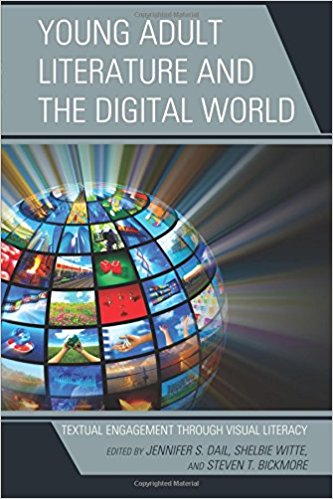
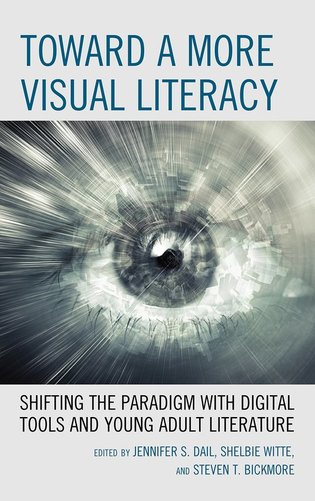
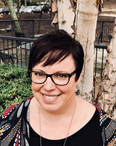
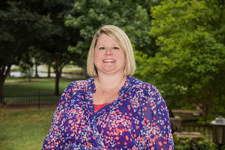
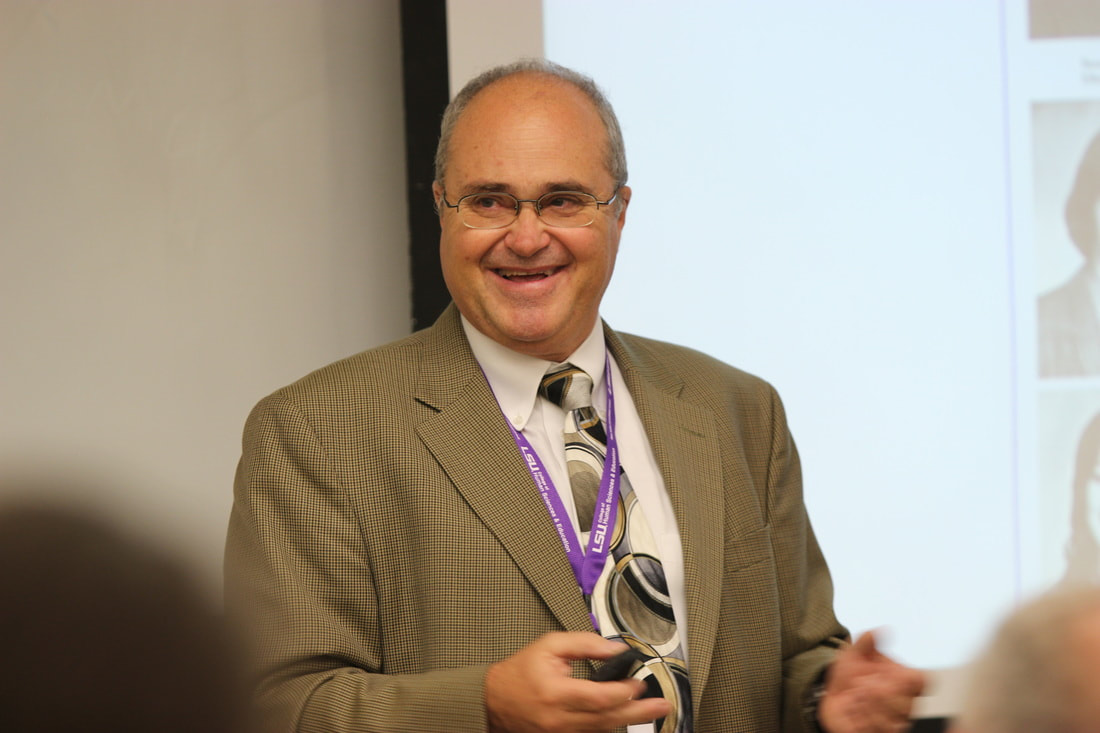
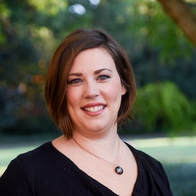
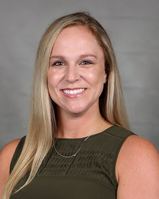
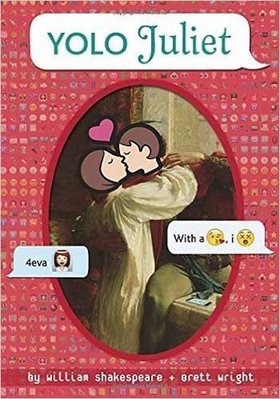
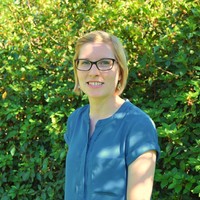
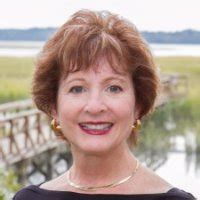
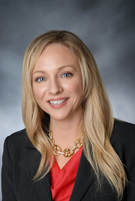
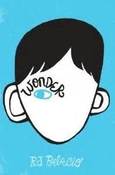
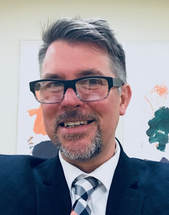
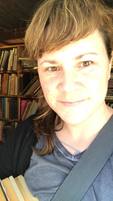
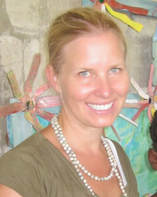
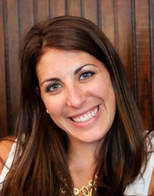
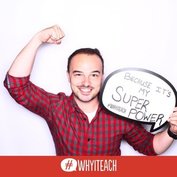
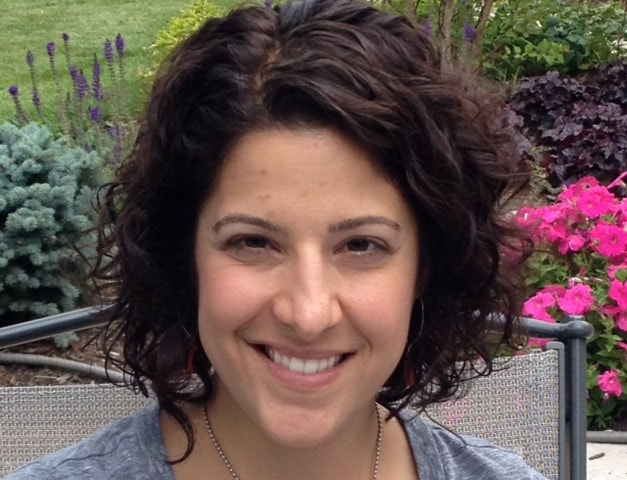
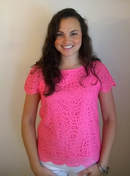
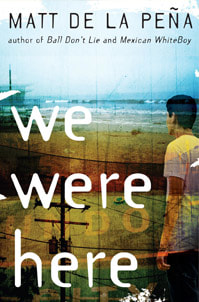
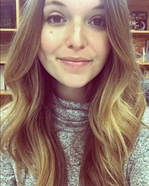
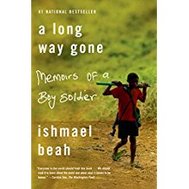
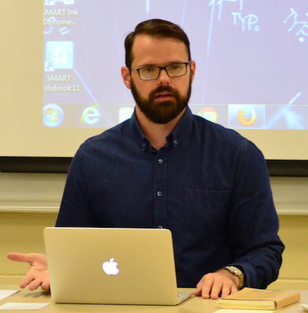
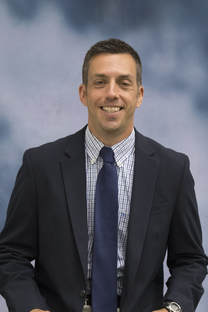
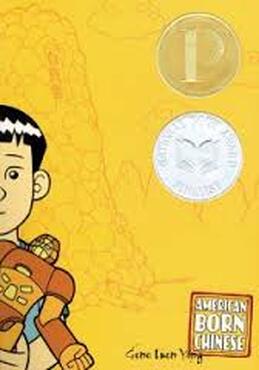
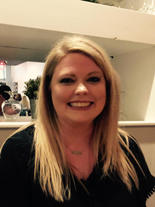
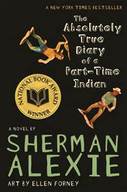
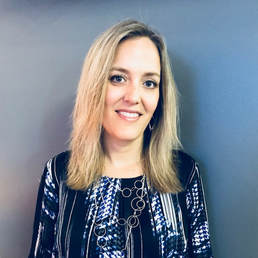
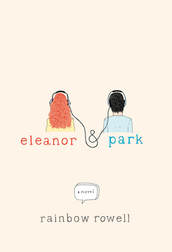
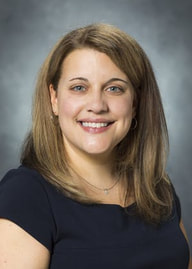
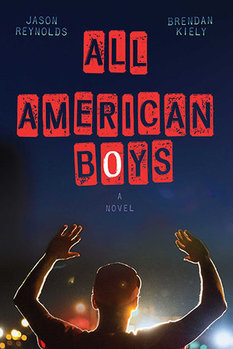
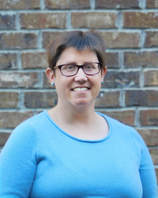
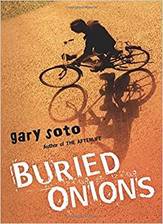
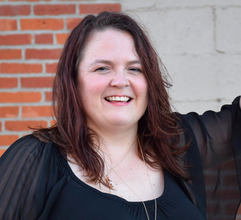
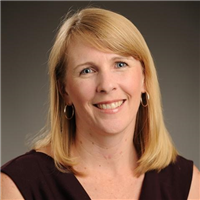
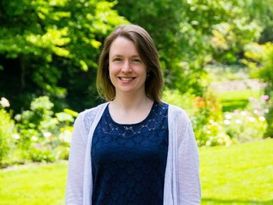
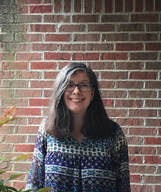
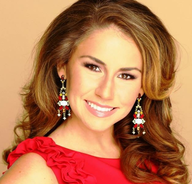
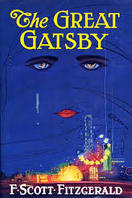
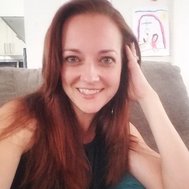
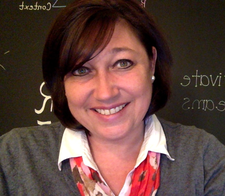
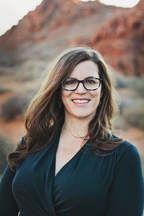
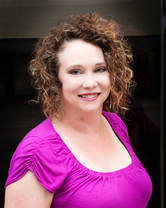
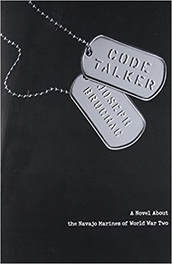
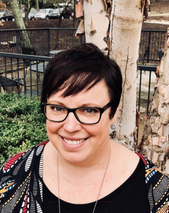
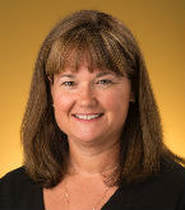
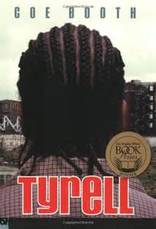



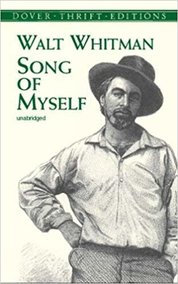

 RSS Feed
RSS Feed